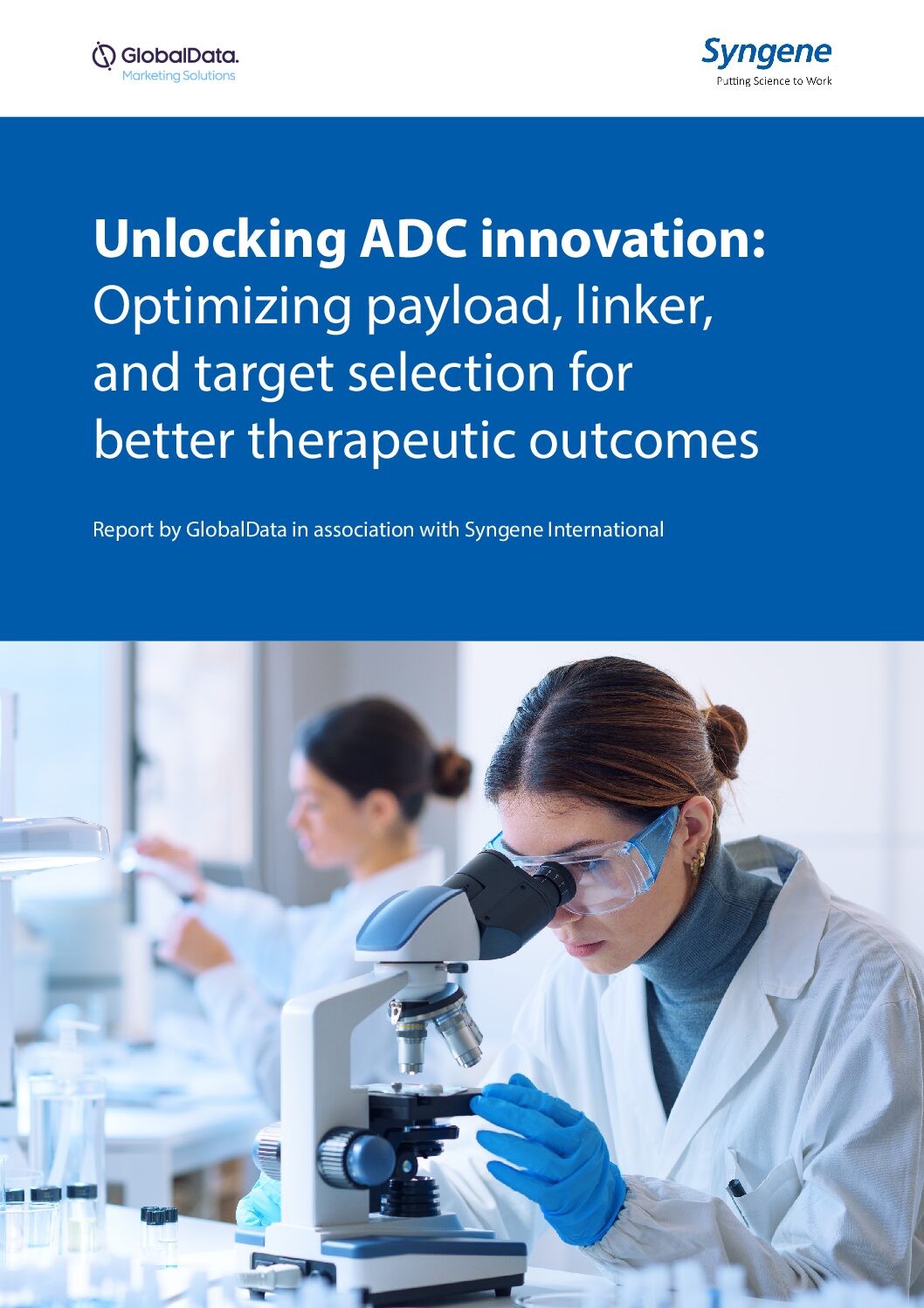

ADC content on Pharmaceutical Technology (Or Clinical Trials Arena) is supported by Syngene. Editorial content is independently produced and follows the highest standards of journalistic integrity. Topic sponsors are not involved in the creation of editorial content.
Merck & Co (MSD) has announced positive data for its antibody-drug conjugate (ADC) therapy, sacituzumab tirumotecan from two studies that recruited patients with lung and breast cancer.

US Tariffs are shifting - will you react or anticipate?
Don’t let policy changes catch you off guard. Stay proactive with real-time data and expert analysis.
By GlobalDataThe company released first-time data from the open-label Phase II trial (NCT05351788) in patients with advanced non-small cell lung cancer (NSCLC) along with additional data from the Phase III study (NCT05347134) with the ADC in patients with advanced or metastatic triple-negative breast cancer.
The results will be presented at the upcoming American Society of Clinical Oncology (ASCO) Annual Meeting taking place in Chicago from 31 May to 4 June.
Sacituzumab tirumotecan is a trophoblast cell-surface antigen 2 (TROP2)-targeting antibody linked to a belotecan-derivative topoisomerase I inhibitor payload. It has the same antibody as the Gilead Sciences’ breast cancer ADC therapy Trodelvy (sacituzumab govitecan), but has a different payload and linker. MSD licenced the ADC therapy along with six other ADC candidates from China-based Sichuan Kelun-Biotech (Kelun) in 2022.
The Phase II trial evaluated sacituzumab tirumotecan in combination with Kelun’s programmed cell death-ligand 1 (PD-L1) targeting monoclonal antibody, KL-A167, in treatment naïve NSCLC patients. The patients were non-randomised to receive 5 mg/kg of sacituzumab tirumotecan every three weeks (Q3W) in addition to either 1,200 mg of KL-A167 Q3W (cohort 1A) or 900 mg of KL-A167 once every two weeks (cohort 1B).
As of 2 Jan 2024, the 40 participants in cohort 1A, who had a longer median follow up of 14 months, demonstrated an objective response rate (ORR) of 48.6% and median progression-free survival (PFS) of 15.4 months. The 63 patients in cohort 1B who only had a median follow up of only 6.9 months, did not reach median PFS but had a six-month PFS rate of 84.6% and an ORR of 77.6%.
One patient in the 1B cohort discontinued the study due to drug hypersensitivity. Commonly observed Grade 3 or 4 treatment-related adverse events (TRAEs) included decreased blood counts such as neutropenia, leukopenia, and anaemia along with rash and drug eruption.
The Phase III study compared sacituzumab tirumotecan to chemotherapy in 263 patients with locally recurrent or metastatic triple-negative breast cancer. The study met the primary endpoint of PFS by demonstrating a 69% reduction in risk of progression or death, based on an interim analysis with a data cutoff of 21 June 2023.
Based on the blinded independent central reviews (BICRs), the therapy has a median PFS of 5.7 months, compared to a median PFS of 2.3 months with chemotherapy. Sacituzumab tirumotecan had an ORR of 43.8% compared to a 12.8% ORR with chemotherapy.
As of 30 November 2023 data cut off and a median follow-up of 10.4 months, median OS was not reached in the sacituzumab tirumotecan therapy group, compared to a median OS of 9.4 months with chemotherapy. The common TRAEs included decreased blood counts similar to the Phase II NSCLC trial.
Both Phase II and III studies were funded by Kelun. MSD is evaluating sacituzumab tirumotecan in combination with the company’s PD1 therapy Keytruda (pembrolizumab) as a first-line treatment in patients with metastatic NSCLC in a Phase III trial (NCT06170788). The trial is expected to enrol approximately 614 participants and will conclude in 2028.
Multiple companies are expected to present data for their ADC therapies at ASCO. ADCs have been an area of interest in recent months, with MSD announcing investments to boost its ADC portfolio. In October 2023, the company partnered with Daiichi Sankyo to develop and commercialise three of the latter’s DXd ADC candidates, potentially spending up to $22bn on the partnership.
ADC content on Pharmaceutical Technology (Or Clinical Trials Arena) is supported by Syngene. Editorial content is independently produced and follows the highest standards of journalistic integrity. Topic sponsors are not involved in the creation of editorial content.






